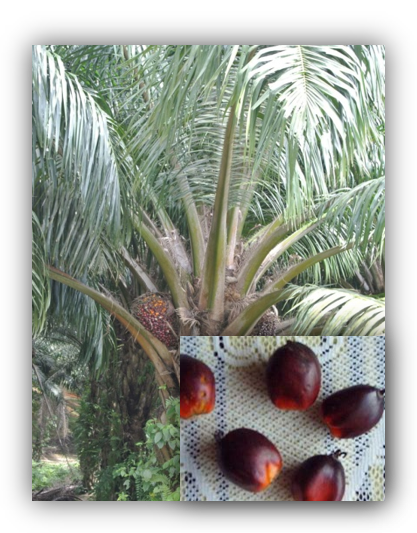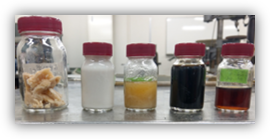Example
Research to convert palm acid oil into second-generation biodiesel fuel
Social background
Now that global warming countermeasures are urgent issues, the early introduction of alternative fuels to replace fossil fuels is desirable. Until now, the first-generation of biofuels derived from vegetable oil has involved cutting down existing forests and converting food into biofuels. This means that carbon neutrality cannot be established and conflicts with food production arise. Purposes of the activities This study is aimed at converting palm acid oil, a non-edible oil that is low in demand and CO2 emissions, into a second-generation biodiesel fuel.Overview of activities
The goal of this study is to establish an efficient method of producing second-generation biodiesel, which can be used as an alternative fuel to light oil, etc. by realizing a hydrogenation-deoxygenation reaction that can selectively and efficiently extract oxygen from vegetable oil with a high acid value. Specifically, a composite catalyst with performance comparable to precious metals is prepared using inexpensive base metals, and this catalyst is applied to palm acid oil high in acid value whose components are heterogeneous to optimize the reaction conditions and efficiently recover long-chain hydrocarbons.Expected effects
This will solve the problem of improving low-temperature flow behavior and limiting the acid value of vegetable oils that can be used for biofuels. Furthermore, since palm acid oil emits only a small amount of CO2, even if it is converted to fuel and emits CO2, carbon neutrality can be established by planting oil palm trees again.
Oil palm trees and oil palm nuts for palm oil production

Experiment on reforming palm acid oil by changing catalyst and experimental conditions (First on the left: palm acid oil)
Representative
